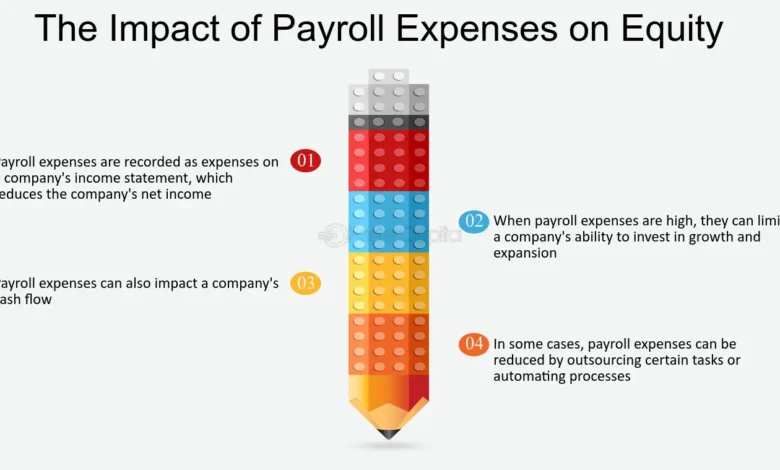Navigating Payroll Tax Implications for a Changing Workforce

Adapting to the fluidity of today’s workforce means that employers must grapple with the nuances of payroll taxes in a way that mitigates risk while embracing innovation. With an uptick in remote work, understanding working remote tax implications has become a pivotal piece of the administrative puzzle. The ability to seamlessly integrate a geographically dispersed team into an organization’s tax framework is not just about regulatory compliance but also about carving out a sustainable, competitive edge.
Key Takeaways:
- Comprehending payroll taxes for remote workers is essential for organizational compliance and financial health.
- Understanding multi-state tax laws requires companies to stay informed to manage remote employees effectively.
- Technological advancements and expert insights are crucial for simplifying payroll tax processes in dynamic work environments.
Table of Contents
- The Basics of Payroll Taxes for Employers
- Remote Work and Residency: Understanding Multi-State Tax Compliance
- Tax Benefits and Credits Applicable to Remote Employees
- The Impact of Government Legislation on Payroll Taxes
- Recordkeeping for Remote Employees: Best Practices
- Payroll Tax Software and Tools: Streamlining the Process
- Seeking Professional Advice: When to Consult a Payroll Tax Expert
- Developing an Effective Payroll Tax Strategy for Remote Teams
The Basics of Payroll Taxes for Employers
Employers bear the brunt of ensuring compliance with an intricate system of statutory requirements in payroll taxes. It is the employer’s responsibility to deduct the correct amount of income tax from employees’ gross pay. This is a fundamental obligation that must be fulfilled without any compromise. It extends to paying Social Security and Medicare contributions, known as FICA taxes. Add to this the state and local taxes, which vary widely, and the need for a crucial understanding of these obligations is non-negotiable. Missteps in this domain not only lead to penalties but can also affect employee trust and corporate reputation.
Remote Work and Residency: Understanding Multi-State Tax Compliance
With the digital age bringing in work-from-anywhere policies, employers now face the labyrinth of multi-state tax compliance. Each state has unique tax laws that can significantly differ from one another, varying from varying tax rates to diverse residency rules that dictate tax obligations. Remote work introduces scenarios where an employee may live and work in states different from that of the company’s base of operations, making the employer potentially liable for payroll tax in multiple jurisdictions. The expertise shared by the American Payroll Association is a testament to the necessity of understanding working remote tax implications in today’s work environments.
Tax Benefits and Credits Applicable to Remote Employees
Employers savvy enough to navigate payroll taxes effectively may also unlock potential incentives. Various programs and tax credits may be available to businesses that set their sights on creating remote work opportunities, such as the Work Opportunity Tax Credit (WOTC). Sourcing out such incentives not only aids in offsetting tax liabilities but also promotes strategic human resource practices that can optimally align workforce distribution with financial planning.
The Impact of Government Legislation on Payroll Taxes
Legislation is a moving target with the potential to overhaul payroll tax obligations. Both federal and state governments periodically adjust tax regulations, which can entail new tax brackets, shifting credit opportunities, and updated filing requirements. Sustaining a forward-thinking approach to legislative changes allows businesses to deftly respond, ensuring compliance and the strategic realignment of financial plans to leverage newly minted legislative acts for the betterment of the organization.
Recordkeeping for Remote Employees: Best Practices
Employers are well-advised to maintain precise and up-to-date records to streamline payroll tax processes. It means harnessing best practices in recordkeeping, such as precisely logging employees’ work hours, residency status, and precise documentation of all payroll tax filings. Especially when it comes to remote employees dispersed across various locations, attention to detail in recordkeeping must be balanced, and failure to uphold these standards becomes a direct path to arduous audits and penalties.
Payroll Tax Software and Tools: Streamlining the Process
Futuristic payroll tax tools, equipped with capabilities from automatic updates on tax laws to sophisticated reporting features, are instrumental in effectively managing remote payroll taxes. These software tools are designed to accommodate the multifaceted needs of today’s businesses, digitizing and simplifying the complex calculations and filings associated with payroll taxes. Companies are adopting technological advancements to improve accuracy and efficiency and to free up resources for core business activities.
Seeking Professional Advice: When to Consult a Payroll Tax Expert
There arises a juncture when the insight of a payroll tax expert becomes indispensable. Engaging with tax professionals is paramount for businesses needing more in-built resources to navigate the intricacies of varying tax regulations. As highlighted by the National Association of Tax Professionals, the guidance offered by industry professionals plays a pivotal role in ensuring a transparent and law-abiding payroll tax strategy. It can impart vital knowledge to shield a business against avoidable fiscal setbacks.
Developing an Effective Payroll Tax Strategy for Remote Teams
Collaborative, well-informed, and proactive qualities define an effective payroll tax strategy for remote teams. Employers must incorporate a blend of adaptability and in-depth knowledge into their tax strategies to stay compliant and efficient. Piecing together an overarching framework that accommodates remote work nuances while remaining alert to legislative shifts and leveraging strategic tools can pave the way to a sound and competent approach to payroll tax management.



